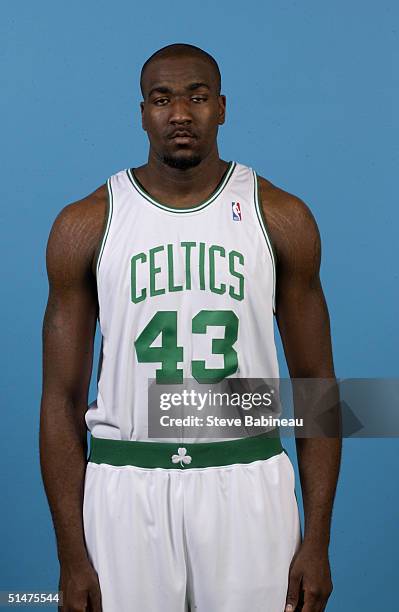Kendrick Perkins, a former NBA player turned analyst, has become a prominent voice in the world of basketball discussions. Known for his bold and often controversial opinions, Perkins brings a unique perspective to the table that keeps fans engaged and talking. His insights, whether they align with popular opinion or not, have made him a staple on platforms like ESPN's First Take, where he frequently shares his thoughts on players, teams, and league awards.
Recently, Perkins sparked significant debate within the NBA community by questioning the integrity of the voting process for major awards such as MVP. His comments have raised eyebrows and ignited discussions about bias, fairness, and the criteria used to determine these prestigious honors. As we delve deeper into his claims, it becomes evident that Perkins' critiques are more than just casual observations—they challenge the very foundation of how accolades are awarded in professional basketball.
Kawhi Leonard: The Best Without an MVP?
Kendrick Perkins declared Kawhi Leonard as the best player in NBA history who has never won the league's Most Valuable Player award. This bold statement stems from Leonard's consistent excellence on both ends of the floor and his ability to lead teams to championships without receiving individual recognition at the highest level. Perkins believes Leonard's lack of an MVP is a glaring oversight by voters, highlighting the disconnect between team success and individual accolades.
Leonard's career achievements include two NBA championships and two Finals MVP awards, showcasing his impact during crucial moments. Despite this, he has yet to be honored with a regular-season MVP trophy. Perkins argues that Leonard's quiet demeanor and focus on team success might have overshadowed his individual brilliance, leading to his exclusion from MVP discussions.
The debate around Leonard's MVP candidacy also raises questions about the evolving criteria for the award. With increasing emphasis on analytics and advanced statistics, Perkins suggests that traditional metrics may not fully capture Leonard's value, thus affecting voter perception and decision-making processes.
Rethinking All-Star Selections
Former NBA player Kendrick Perkins stirred controversy when he claimed that Stephen Curry does not deserve to be an All-Star this season. Citing Curry's lower performance statistics compared to previous years, Perkins argued that the selection process should prioritize current form over past accomplishments. This stance drew criticism from fans and analysts alike, who believe Curry's influence extends beyond numbers.
Curry's impact on the game goes beyond scoring averages and assists; his ability to elevate teammates and transform team dynamics is unparalleled. Perkins acknowledges Curry's historical significance but insists that All-Star selections should reflect present contributions rather than legacy. This perspective challenges the notion of rewarding players based solely on reputation.
The discussion surrounding Curry's All-Star eligibility highlights the complexities involved in evaluating player worthiness. It prompts a reevaluation of how subjective factors like leadership, charisma, and intangible qualities factor into voting decisions, ultimately shaping public perception of deserving candidates.
A Journey Through Basketball Legacy
Kendrick Perkins' journey through the NBA began when he entered the league directly out of high school. Over his career, he played for several teams, including the Boston Celtics, Oklahoma City Thunder, Cleveland Cavaliers, and New Orleans Pelicans, securing a championship with the Celtics in 2008. His experiences as a player provide valuable context to his current role as an analyst, allowing him to offer informed perspectives on modern basketball trends.
Perkins' transition from player to commentator has been marked by his willingness to tackle sensitive topics and challenge conventional wisdom. His outspoken nature often places him at the center of debates, making him a polarizing figure in the basketball world. Yet, his authenticity resonates with many viewers, who appreciate his unfiltered views on the sport.
As Perkins continues to shape discourse around NBA awards and player evaluations, his background serves as a reminder of the diverse paths individuals can take within the sport. His career trajectory underscores the importance of experience and insight in fostering meaningful conversations about basketball's future direction.
Voting Integrity Under Scrutiny
Kendrick Perkins' self-imposed ban from participating in NBA awards voting did not deter him from expressing strong opinions about the process. Perkins criticized the system, suggesting potential biases and inconsistencies among voters. His skepticism reflects broader concerns within the basketball community regarding the transparency and fairness of award selections.
By openly questioning the validity of certain outcomes, Perkins aims to provoke a dialogue about improving the voting methodology. He advocates for greater accountability and clearer guidelines to ensure that decisions align with objective criteria. This call for reform seeks to enhance the credibility of awards while addressing perceived injustices.
The ongoing scrutiny of voting practices highlights the need for continuous evaluation and adaptation in sports journalism. As Perkins continues to voice his concerns, he contributes to a larger movement towards creating a more equitable and transparent framework for recognizing excellence in professional basketball.
Addressing Racial Bias in Award Voting
Kendrick Perkins addressed his controversial claim that racial bias influenced Nikola Jokic's MVP victory. Suggesting that Jokic benefited from preferences held by predominantly white voters, Perkins ignited a heated debate about diversity and representation in sports media. His comments prompted discussions about unconscious biases that may affect voting patterns and outcomes.
Jokic's triumph as MVP was celebrated by many, yet Perkins' critique sheds light on underlying issues that warrant examination. By challenging assumptions about fairness in voting, he encourages a closer look at how cultural perceptions impact decision-making processes. This conversation extends beyond basketball, touching on broader themes of equity and inclusion in sports coverage.
Perkins' willingness to engage in uncomfortable dialogues demonstrates his commitment to fostering understanding and promoting positive change. His efforts contribute to a richer discourse about the intersection of race, media, and athletics, paving the way for more inclusive practices in recognizing athletic achievement.

